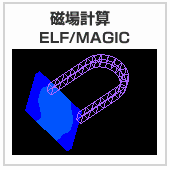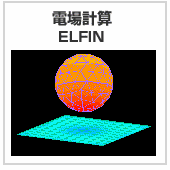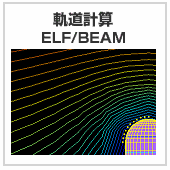The ELF series is currently used by many companies, research institutes, and universities.
This software calculates electromagnetic fields using the integral equation method (IEM).
In many cases, even when it is difficult to analyze by FEM (Finite Element Method) or BEM (Boundary Element Method), it can be easily analyzed.
In general, IEMs have the potential to analyze electromagnetic fields with high speed and accuracy.
Although orthodox IEMs have a problem with stability of the solution (example of orthodox IEM ≫)
We have clarified the cause of this problem and made our own improvements.
As a result, we were able to establish a calculation method that can obtain a solution with high speed and high accuracy.
Features
No spatial mesh is required because the integral form of Maxwell's equations is used.
The mesh is easy to create.
Electric and magnetic fields in space are highly accurate because the analytical expressions from the source are used.
Calculation of the trajectory of charged particles in space is highly accurate.
When multiple bodies are in motion, there is no need to remesh because no mesh is needed in the space between the bodies.
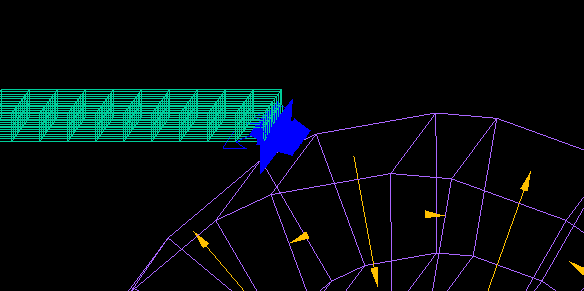

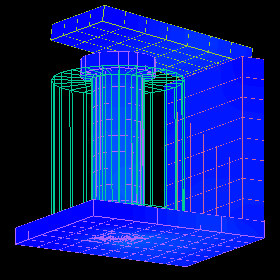
Both attractive and repulsive forces can be accurately calculated by analytical formulas until they are very close together.
This is the calculation of the force acting when two magnets of 1 cm on each side are brought closer together from 1 cm to 0.1 μ.
Both the attractive and repulsive forces converge to the same value even when the gap is narrow.
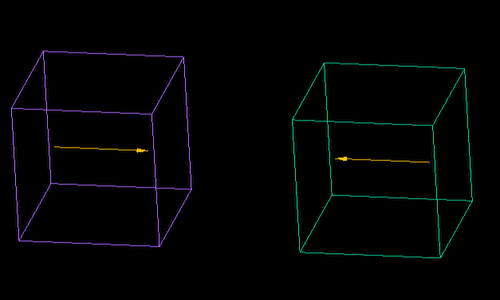
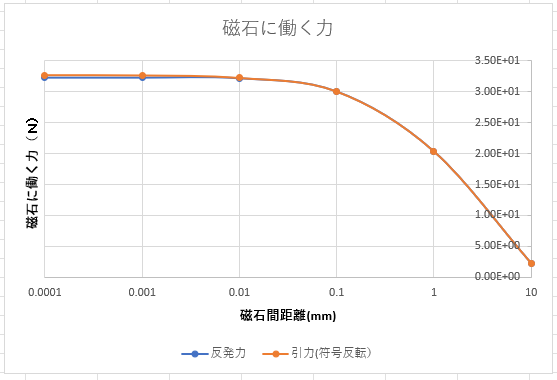
Even when charged particles are in close proximity to magnets or electrodes, the analytical formula ensures that accuracy is not decreased.
If the two parts are separated, the continuity of the mesh is not a question, so the mesh size can be extremely large or small.
If there are very thin magnetic materials in the space, it is easy because no space mesh is needed.
Magnets can be analyzed with extremely coarse meshes because there are little changes in the internal magnetization even when an external magnetic field acts on them.
Analysis of magnetization is also possible.
The division of coil elements is easy because it can be done almost independently of the division of air and magnetic elements.
Long straight coil does not need to be divided.
3D Analysis, 2D Analysis, Axisymmetric Analysis
static magnetic field analysis, dynamic magnetic field analysis, eddy current analysis, transient analysis, sinusoidal analysis, static electric field analysis, charged particle trajectory analysis
Magnetic materials, magnets, coils, conductors, magnetic conductors, electrodes, dielectrics
Magnetic and electric fields, magnetic and electric flux density
eddy currents, charge density, forces, motion
Induced currents, Joule heat, interlinkage flux, inductance, charged particle trajectory
Electron microscopes, sensors, magnet products, magnetic shields, motors, linear motors, relays, plungers,transformer
Electron holography, sputtering, MEMS, magnetic heads, flat cathode ray tubes
electron guns, accelerators, capacitors
We exhibited at Compumag 2023.
Dates: Monday, May 22 - Friday, May 26, 2023
Venue: Kyoto International Conference Center
https://www.compumag2023.com/
Analysis Examples
Examples of Magnetic Field Analysis ≫
Examples of Electric Field Analysis ≫
Examples of Trajectory Analysis ≫
Example problems that can be calculated in the demo version (ELF/MAGIC) ≫
Papers ≫
Users ≫
Analysis Method
Basic Description of Analysis Methods ≫
Conventional Magnetic Moment Method ≫
Conventional Surface Charge Method ≫
ELF's original Integral Element Method ≫
FAQ ≫
Usage
How to use each tool and how to create data.
Operation Guide ≫
solver
Magnetic Field Analysis ELF/MAGIC ≫
Electric field analysis ELFIN ≫
Trajectory analysis ELF/BEAM ≫
Tools
Product
About Us
a:1015463 t:10 y:14
